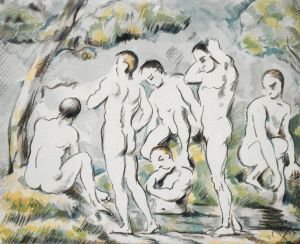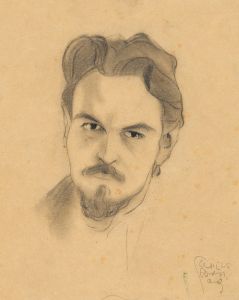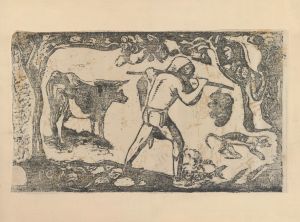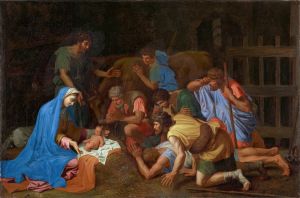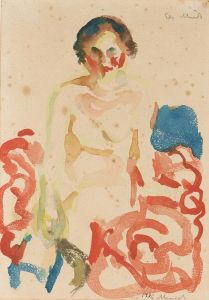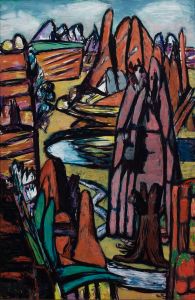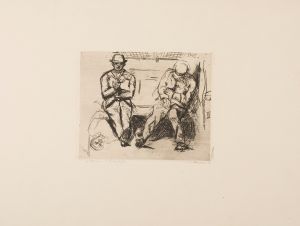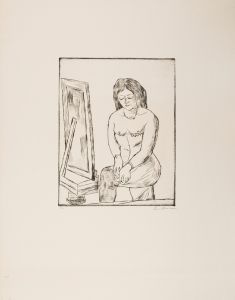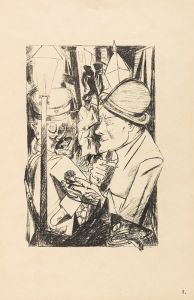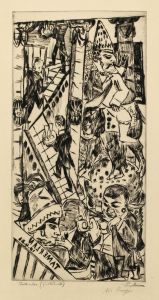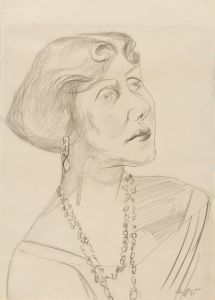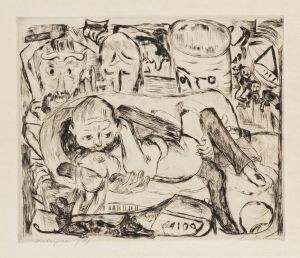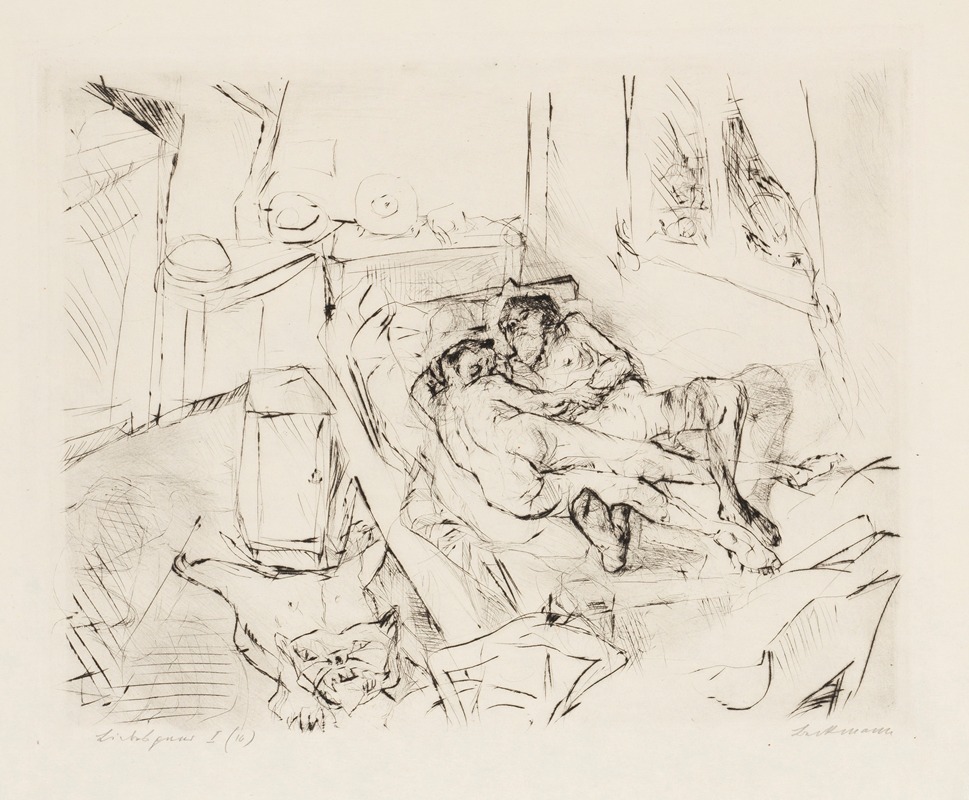
Gesichter Pl.07
A hand-painted replica of Max Beckmann’s masterpiece Gesichter Pl.07, meticulously crafted by professional artists to capture the true essence of the original. Each piece is created with museum-quality canvas and rare mineral pigments, carefully painted by experienced artists with delicate brushstrokes and rich, layered colors to perfectly recreate the texture of the original artwork. Unlike machine-printed reproductions, this hand-painted version brings the painting to life, infused with the artist’s emotions and skill in every stroke. Whether for personal collection or home decoration, it instantly elevates the artistic atmosphere of any space.
Max Beckmann was a German painter, draftsman, printmaker, and sculptor, known for his distinctive style that combined elements of Expressionism, New Objectivity, and a personal form of realism. His work often explored themes of existential angst, the human condition, and the complexities of modern life. One of his notable works is "Gesichter Pl.07," which is part of a series of prints Beckmann created.
"Gesichter," which translates to "Faces" in English, is a series that Beckmann worked on during a period of significant personal and political turmoil. The series reflects his deep engagement with the social and political changes occurring in Germany during the early 20th century, particularly in the aftermath of World War I and leading up to World War II. Beckmann's work from this period often captures the tension and uncertainty of the time, as well as his own personal struggles.
"Gesichter Pl.07" is a print that exemplifies Beckmann's skill in capturing the psychological depth of his subjects. His use of bold lines and stark contrasts creates a dramatic effect, drawing the viewer into the emotional world of the figures depicted. Beckmann's faces are often characterized by their intense expressions and the sense of inner turmoil they convey. This particular print, like many in the series, reflects his interest in the human psyche and the complexities of identity.
Beckmann's work was heavily influenced by the events of his time. The rise of the Nazi regime in Germany had a profound impact on his life and career. In 1933, Beckmann was dismissed from his teaching position at the Städelschule in Frankfurt due to the Nazi's policies against modern art, which they deemed "degenerate." This led to a period of exile, during which Beckmann lived and worked in Amsterdam before eventually moving to the United States in 1947.
Despite the challenges he faced, Beckmann continued to produce art that was both innovative and deeply personal. His work has been celebrated for its ability to capture the complexities of the human experience, and he remains an influential figure in the history of modern art. "Gesichter Pl.07" is a testament to his enduring legacy and his ability to convey profound emotion through his art.
Today, Beckmann's works are held in major collections around the world, and he is recognized as one of the leading artists of the 20th century. His prints, including those in the "Gesichter" series, continue to be studied and appreciated for their artistic and historical significance.






